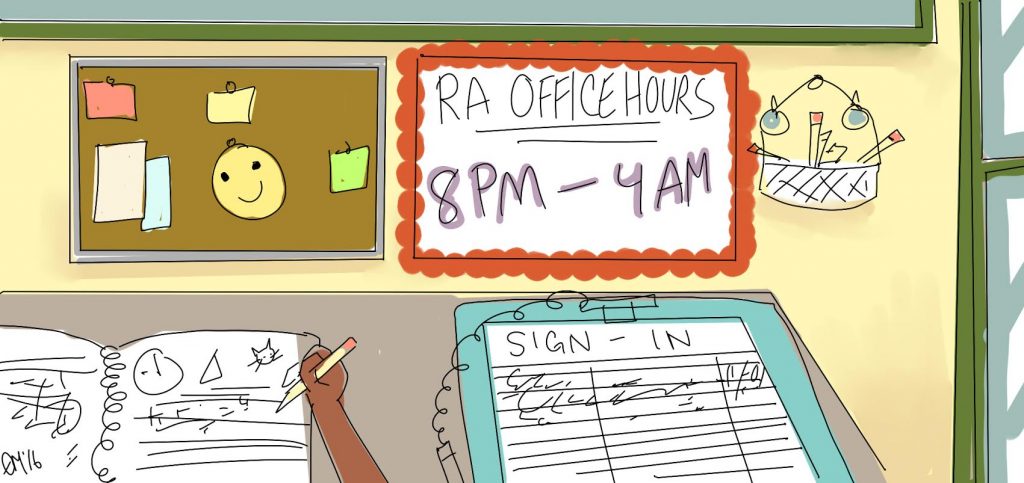Early Sunday morning, Oct. 23, a man with no university affiliation was not stopped from gaining access to the University at Albany’s campus. He was not stopped from entering Stuyvesant Tower — a dormitory at UAlbany that is only accessible with the swipe of a resident’s card. He was not stopped from walking through the hallways of this building, entering the room of a female student and raping her.
Our thoughts are with the victim and all those affected by the terrible incident. We wish her strength and hope that UAlbany’s community will come together and figure out how to prevent such an incident from occurring again in the future.
It is painfully clear that there are flaws in the security system that was meant to keep UAlbany’s students safe. When we looked into these security systems, it was also clear that they are similar to the ones currently employed at Binghamton.
Like UAlbany, our residence halls can only be accessed by students who live in the community and hold University ID cards. However, anyone who has lived on campus knows that not only is it easy to tailgate into a building, but students also invite guests they don’t know into their buildings when asked. UAlbany’s campus, like ours, is located off of a major thoroughfare, miles from the city’s center. While the location of both campuses may seem secluded, it is evident that individuals with no relation to the University — if determined enough — can gain access to campus and its dormitories at any time.
The University Police Department offers thorough services to monitor threats to security and keep students safe on campus. Officers frequently patrol the campus, promptly respond to calls and offer an escort service to students who feel unsafe on campus after dark. We are grateful for their efforts in thoughtfully facilitating campus safety.
The next line of security lies within Binghamton’s residential communities. While police can respond to safety threats and mediate conflict when they see it, it is the quieter threats that pose real danger to on-campus students. Resident Assistants (RAs) monitor who enters buildings at their main entrances. However, they do not check IDs or sign in guests, and are only required to be in the office for a night shift from 8 p.m. to midnight in most cases. This leaves the entrances unmonitored after midnight — well before most students tend to arrive back to campus for the night and are most vulnerable to incidents like one that occurred at UAlbany, that occurred at approximately 4 a.m. on Sunday.
Ideally, a university would be as safe as its students choose to make it. We are expected to look out for one another and ourselves. There are emergency phones in dorm buildings, blue lights outdoors and campus hotlines to call if you feel unsafe. Numerous groups encourage students to watch out for their peers and not let strangers into buildings. Many students do engage in these behaviors, but the system currently in place is far from perfect.
It is too easy for strangers to enter buildings uninvited and a plausible solution to this issue is to have someone there during those critical nighttime hours. RA hours could be extended to cover this time frame. Numerous other universities, including nearby SUNY Oneonta utilize “night hosts,” or students who take the place of RAs for late and weekend shifts. These paid workers are tasked with logging and reporting all incidents and tracking all those — current residents or not — who enter the building after a certain time.
When current students bring a guest over, the visitor is required to sign in and provide an address. If a visitor arrives by himself, he is required to wait outside until the host arrives to escort them into the building. We recognize the value in a program like this and encourage Residential Life to strongly consider its benefits and feasibility at Binghamton University.
It’s idealistic to think that students can always identify or intervene in a situation that is not right. The measures outlined above can help make up for the flaws in our human safety net. Although such a sign-in system could be seen as a nuisance to students arriving home after a long night, we must realize that the security of our students in their own bedrooms is paramount.



